John 13: 14-17: “Now that I, your Lord and Teacher, have washed your feet, you also should wash one another's feet. I have set you an example that you should do as I have done for you. I tell you the truth, no servant is greater than his master, nor is a messenger greater than the one who sent him. Now that you know these things, you will be blessed if you do them.”
In these words, in these actions, and especially in the actions in the days that follow this Passover meal, Jesus gives us a lesson, a gift, of profound humility, grace, and human equality that are at the very core of the Easter renewal season. Shouldn’t this story, then, be a beautiful, gentle reminder of our responsibility to treat all of our fellow human beings with kindness and respect? Shouldn’t we remember, in the season of rebirth both as spring envelopes the Earth, tucking winter away in its warm embrace, and as the celebration of Jesus’ resurrection from the dead manifests itself in Christian churches the world over, our own chance to start anew, to take up the cloth and wash one another’s feet?
What a strange, beautiful, surprising coincidence, then, that I was to be reminded of this lesson, of this gift, on a remote beach in northern Indonesia by a Bahasa Indonesian-speaking Muslim man on a day none-other than, Holy Saturday. I suppose, though, that God has a way of appearing in the most unlikely of places.
I was wandering, in my dazed cloud of euphoric happiness, making my way along the deserted beach at sunrise, and filling my lungs with the fresh, salty, renewing air when I unintentionally wandered my way into a pile of tar…the tar waste from a ship passing through in the night that had found itself onto my untouched white-sand beach. How rude.
Of course, this black, sticky, thick substance is not exactly the kind of material that fits easily into one’s meditative sunrise bliss. Thus, my bubble was burst. And I found myself standing in the middle of paradise…cursing the ship, the low tide, the palm tree, the tar, my meditative bliss that got me into this in the first place, and just about every other inanimate object this little paradise had to offer. Not exactly the renewal and grace Jesus had in mind.
But at this point my “humanness” took over, and I was no longer silently contemplating God’s sweet, salty air or His sun’s red-orange rays playing hopscotch on the water. No, all I was thinking about now were two steps: first, get this crap off my feet and second, swim out to the offending ship and proceed to sink it. Again, not exactly the renewal and grace God’s Son had planned out for me this weekend.
So first thing’s first: scrub the tar off my feet.
A fact I did not know about beach tar: the more you scrub, the more it spreads, the more it spreads, the more you scrub, and the more it spreads. You get the picture. Step two was momentarily, luckily for the ship, put on hold while I angrily scrubbed at my poor feet with water, sand, hand, foot, stick, shell, and, at one point, a brief contemplation of the crab sitting on the mud flat in front of me. Lucky for him (or maybe for me), he disappeared down his dirt hole just in time. So, just as I was about to skip step one in favor of the far more realistic and plausible step two…
… my Bahasa Indonesian-speaking Muslim friend appeared, carting along, what else, but a small asymmetrical rag and a square container of some sort of special tar-removing miracle fluid.
Without a word of English, this man managed to tell me to hold still, give him my foot, and, with a bit of “tut, tut, tutting”, scold me like a mother scolds a toddler for stepping in the stuff in the first place. Smiling and scolding all the while, the graying Indonesian Muslim man, who could have been 25 judging by the way he agilely squatted and gracefully leaned to and fro, to and fro as he scrubbed, but whose taut, wrinkled, tanned, leathery skin gave him about 40 more years, cleaned my feet with his gasoline-scented miracle fluid until all the tar was gone.
Then, just as quickly as he had come, he stood smoothly to his full height of about five feet even, smiled, “tutted” one last time, and moved quickly away in search of others who had suffered the same tar-feet fate.
Now I am not being in the least bit theatrical when I say that as he walked away, and the realization of the connection between the story of Jesus washing his disciples’ feet and the fact that it was indeed Holy Saturday settled into my bones, tears began to well in my eyes. Not the kind of tears that pool until they over flow and fall raindrop-like to the ground. But instead these tears momentarily clouded my vision and then, as I looked back toward the sunrise, disappeared as quickly as my feet-washing friend.
And as I stood there, once again returning to absolute meditative bliss and trying to recall what I had been thinking about before (something about sinking a ship…how silly), I had another of those surreal moments that only Asia can provide: I, a fairly moderate to liberal Christian, just saw Jesus in a Muslim man who washed tar off my feet with gasoline on a deserted white-sand beach in Indonesia at sunrise. TIA.
Needless-to-say, my Holy Week was a bit different this year than it has ever been before.
It all began with a Seder meal hosted by my Jewish, Hebrew-speaking, American friend, Joe, at the home of a Catholic PiAer, attended by several of my other American friends who are all Christians in varying senses of the word. Not only were those in attendance a bit “mutt-like”, but our Passover food was as well. In place of the matzah, or flat bread, we had Thosai, Indian pancake-like bread. Replacing the maror, bitter herbs, was the Korean kimchi, rather than the Charoses mixture traditionally consisting of apples, nuts and cinnamon, we had rojak, a Singaporean favorite sweet-sauced fruit mixture, and instead of a lamb shank bone, there was a roasted chicken leg from the local grocery store.
Despite the substitutions, some practices remained true to tradition. Joe read much of the meal service in Hebrew (offering English translations, of course), we all enjoyed the typical four glasses of wine, and we learned a great deal about the symbolism of the foods.
A very quick and very inadequate run-down: Matzah is unleavened bread meant to remind us of the haste in which the Israelites fled Egypt. The bitter Maror symbolizes the bitterness of slavery while the sweet, sticky Charoses is meant to represent the mortar used by the Jews in the construction of buildings as slaves. A boiled egg sits on the plate as a symbol of life (note the importance of eggs to many people of different religions during this renewal season). An herb, like parsley, is dipped in salt water to help us remember the tears shed during the escape from Egypt. Finally, the lamb bone represents the paschal sacrificial offering made by the Jews in order to paint their door frames with lambs’ blood and to be passed over by the angel of death.
My Holy Week continued in a blur of those activities that I never expected to be a part of my life when I signed up to be a teacher in Asia. I took an Oral Communications course, taught a group of 30, 13-year-olds a swing dance in preparation for International Friendship Day, played MC at my school’s Games Day, and had a long lunch with a group of my Singaporean colleagues in a bistro owned by a Long Island native which boasted “traditional American fare.”
Stephanie and I left on the ferry for our Indonesian shanty shack on Thursday evening. We arrived just in time to use the squat toilet and collapse into our king-sized, mosquito-net-covered bed, before the generator blew and the electricity went out.
We spent the rest of the long weekend waking for sunrise before enjoying a long, lazy breakfast of fried rice and an over-easy egg prepared by a friend of the owner and sitting at an uneven picnic table. We would then waste away the days by walking (occasionally trekking on seaside rocks) along the beach, meeting only the occasional fisherman or Indonesian couple stealing away for some alone time in an empty cove. I finished two novels and a magazine and took several palm-tree-shaded naps during those long hours when the day stretched on into beautiful nothingness. What else can you do when the nearest ATM is over an hour’s drive and the next nearest restaurant a good mile or so up the road? We spent our evenings playing poker, gin rummy, and speed at the same rickety, lopsided picnic table at which we ate breakfast and lunch before settling in for a 9 o’clock bedtime…a perfect way to find renewal in the Easter season.
When we arrived home Sunday evening, Stephanie and I partook in yet another Easter tradition…Easter egg dying.
The influence of spring rites and renewal is what makes the egg special during Easter. Almost all ancient cultures held eggs as a symbol of life. An old Latin proverb encompasses this belief: “omne vivum ex ovo”or“all life comes from an egg.”
Eggs are symbols of life for Jewish Seder meals. Christians also view the egg as representative of new life.
Eggs may have gained particular significance to Christianity’s Easter season in Medieval Europe when they were forbidden during Lent. It was traditional to use up all the eggs in the household before Lent. Thus the Pancake Day tradition, which is still practiced in the U.K., Ireland, and Australia, arose and pancakes are eaten on Fat Tuesday. Eggs were again eaten on Easter, were a mainstay in Easter meals, and were a prized gift for children as they are today. The egg itself is a symbol of the Resurrection – while dormant, it contains a new life within. The art of decorating these eggs dates back to the Roman, Greek, and Egyptian celebrations of spring.
Renewed and enlightened I returned to school this week. Though busy, I enjoyed my students’ creativity while they worked to complete their Greek gods and goddess projects during which they wrote a proposal to Zeus as one of the other gods or goddesses asking for a new power, reviewing swing dancing in preparation for next week's Friendship Day celebration, choreographing and finally teaching some of the dances for the musical, teaching a few review lessons in preparation for the mid-year exams coming up in a few weeks, and another Oral Communications course.
The weekend has arrived after a long and busy week, and I am looking forward to a bit more renewal, though probably not as much in over-stimulated Singapore as I experienced in Bintan.
I am also looking forward to attending another school’s musical Saturday evening with my mentor, finishing a bit of work, attending some yoga classes, and even fewer days to check off until my family arrives for their visit in June.
Happy Easter Season, Cheers, and TIA,
Rachel
Friday, April 9, 2010
Subscribe to:
Post Comments (Atom)

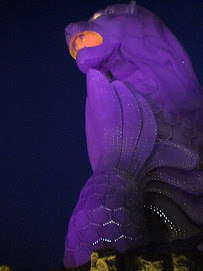

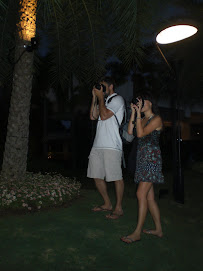

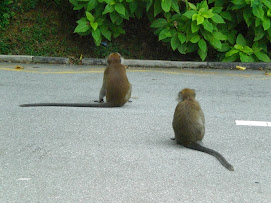
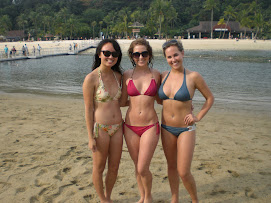
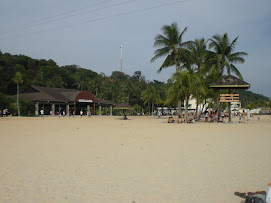
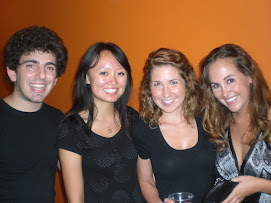

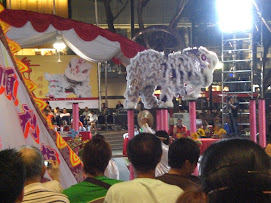
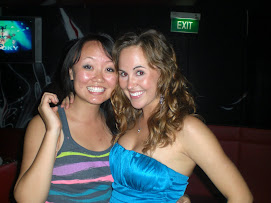
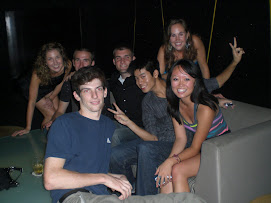
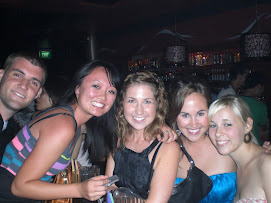

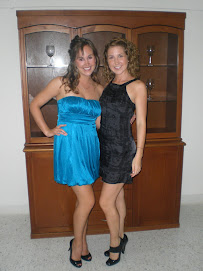


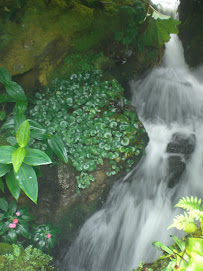

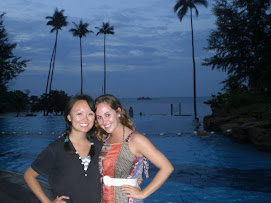
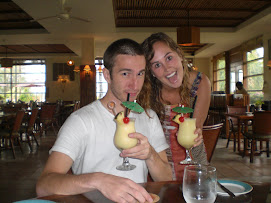
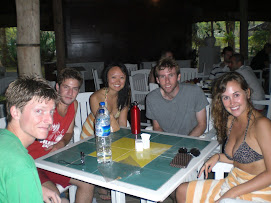
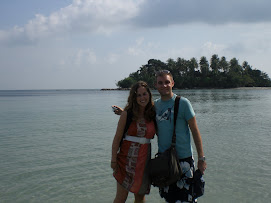
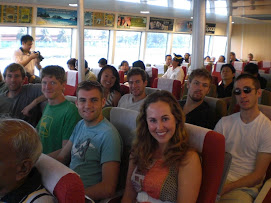

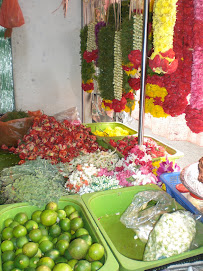


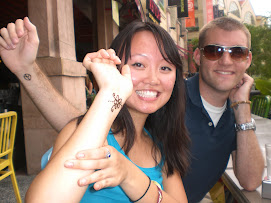
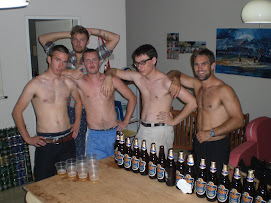
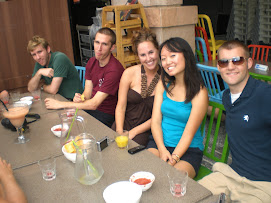
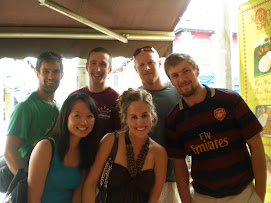
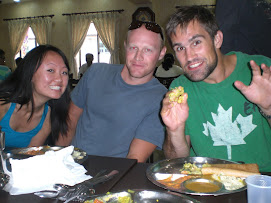
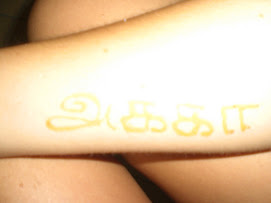
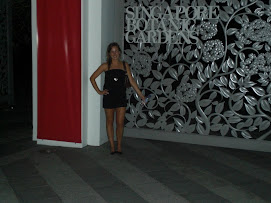
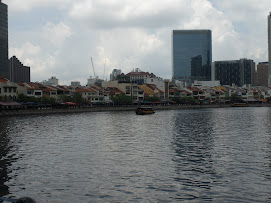
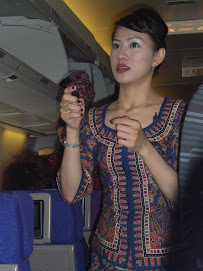


No comments:
Post a Comment